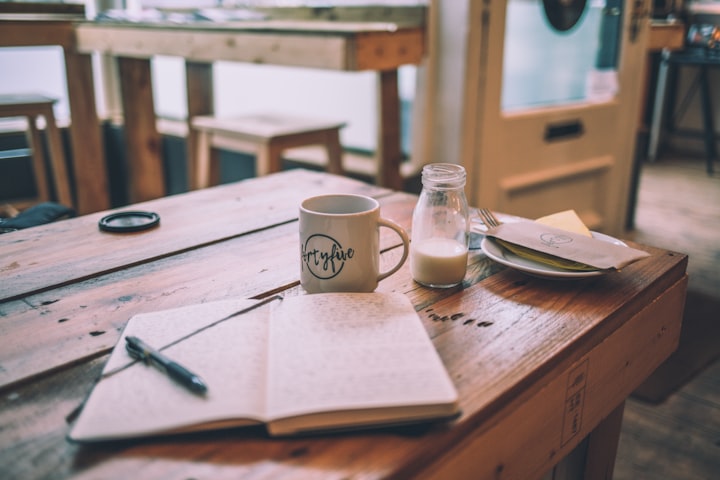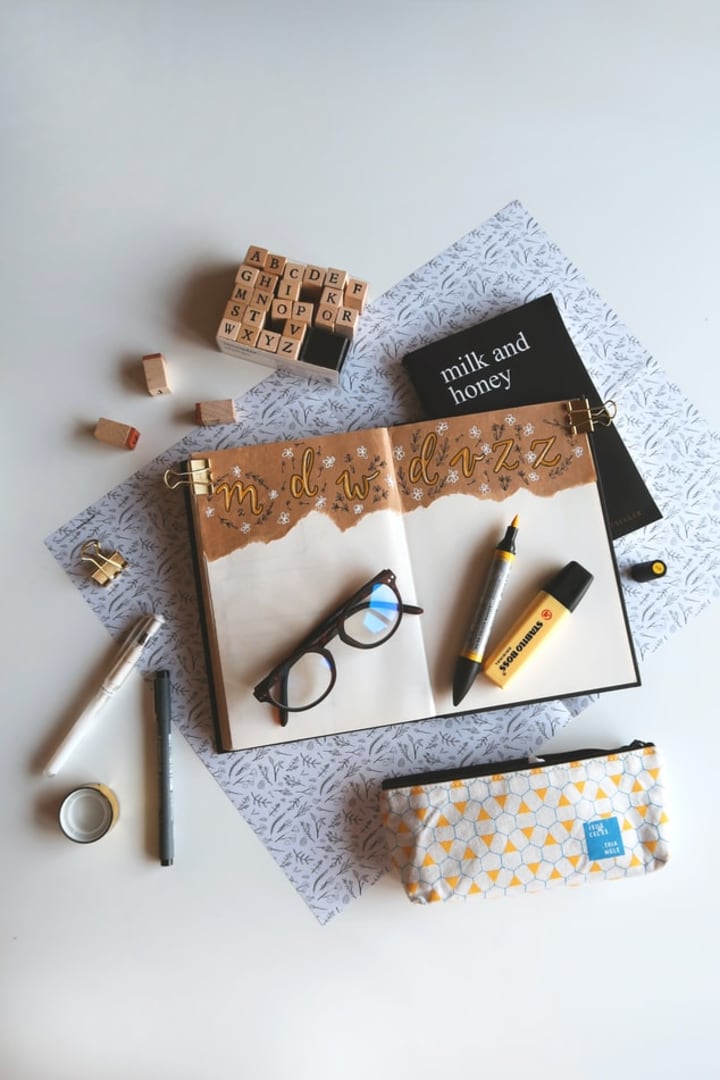5 Reasons Why The Best Hobby In Recovery Is The Bullet Journal
Bullet journals are useful for recovering addicts in several ways

If you are in recovery from a substance abuse disorder, it’s important to find engaging hobbies that interest you to avoid having too much idle time on your hands. This is especially true during the first year in recovery, as excessive boredom and a lack of structure can trigger relapses. If you’re at a loss for ideas or just looking to try something new, one activity you should consider is bullet journaling.
If you’re not familiar with the bullet journal, it’s basically just a written system that you can use to keep track of everything essential in your life. If you hate writing and started to lose interest upon hearing the word “journal,” — hear me out for a minute. The bullet journal setup is nothing like a traditional journal or diary with long written daily entries. The entire concept of bullet journaling is to write as little as possible!
Origins of the Bullet Journal
The bullet journal method is an organizational system invented by a designer named Ryder Carrol to help him manage his Attention Deficit Disorder. If the fact that the bullet journal’s creator knows firsthand what it’s like to live with a mental illness isn’t an indication that the system could be beneficial to an addict, I don’t know what is! Carrol eventually released a book about his method in 2013, and it wasn’t long before bullet journaling had a considerable cult following.
The system gets its name from two things: its use of “bullets” or abbreviated bullets of information used to quickly log different types of data, as well as the dotted paper used in most bullet journal notebooks. Since describing the process and set-up would make this article far too long, I won’t get any more in-depth here. Luckily, hundreds of websites and YouTube channels have detailed tutorials on how beginners can set up and begin using a bullet journal. I will include links to a few useful introductory websites below.
Before you decide either way or look any further into how to get started, let me give you five reasons why the bullet journal is the perfect hobby if you’re in recovery.
1. It will help with organization and time management.
As I previously mentioned, the primary purpose of a bullet journal’ (or “bujo” as the cool cats call it) is to organize your life. For many addicts, early recovery can be a little disorienting. Some people experience “brain fog” or difficulty concentrating or remembering things. A bullet journal uses symbols and shorthand to record upcoming events, important notes, and tasks you need to accomplish. The simple manner in which bullet journals are set-up makes organization a lot easier than writing long to-do lists or scribbling on a million post-it notes that you later misplace. It can also help improve time-management skills, which can be a problem for many people with SUDs.
2. It can improve your mental health.
Many people struggling to manage a SUD also have another co-occurring mental illness, such as depression or anxiety. Bullet journaling can reduce stress and improve your mood. Keeping things organized and in order will make it easier to remember important things such as your medical and mental health appointments, medication, recovery-based activities, or any other social functions you want to attend. A better organizational system will save you from the stress of forgetting important events. Bullet journaling can also improve mental health by fostering creativity and promoting self-expression — leading me to my next reason.
3. It can be a great creative outlet.
Some bujo fans went a step beyond using it for only functional purposes and have turned bullet journaling into an art form. Using elements like doodles, brush lettering, watercolor painting, stickers, and stencils, they create all types of beautiful art on the pages of their journals. There’s no limit to the ways you can customize and decorate your bujo to make it a reflection of your style. You can also buy hundreds of different journals, with covers and pages in every sort of color and design.
Without any substances to numb our feelings, individuals in recovery need to find outlets for our emotions and ways to express ourselves. Getting creative and artistic is an optional side of bullet journaling, but it can be the most rewarding aspect.

4. It can help you form connections with other people.
One unhealthy habit that many addicts struggle to overcome is a tendency to isolate or withdraw from social activities. Isolating is problematic because we need a support system in recovery and because loneliness can be a big relapse trigger.
There is a massive following of bujo lovers online, making it pretty easy to meet other people who share a common interest. There are Facebook groups, classes you can take (online or at local craft stores), and even a national bullet journaling convention every year called Plannercon. Making friends in the bullet journal community is pretty easy!
5. It’s a customizable hobby.
The best thing about bullet journaling is that you can tailor it to fit your needs. One popular way that people customize their bujo is by creating habit trackers. These are simple to set up, and you can use them to keep track of anything important to you — such as weight loss, attendance at 12-step meetings, or the amount of water you’re drinking every day. You can track habits that are important to you for a week, a month, or even a year.
Another variation of this idea is mood trackers, which record your emotions every day for some time to keep a record of your mental health. They can help you see patterns over time that you may not have previously noticed. Other ways to personalize your bujo include decorating it with artwork that is meaningful to you, whether it’s hand-drawn cartoon characters, stickers of your favorite bands, or with some poetry or lyrics you’ve written. The possibilities are endless.
Conclusion and Resources
Recovery is a time of exploring who you are and all you can be. It’s essential to keep your mind actively engaged, connect with others, and find ways to express yourself and healthily process your feelings and emotions. Bullet journaling is a great way to do all of this. It’s a system that has helped many people with organization and time management, two skills that many addicts need to improve upon — no matter how long you’ve been in recovery. It’s a hobby that can be as simple or as elaborate as you want it to be and can help improve your mental health.
Below are some excellent resources if you’re interested in learning more about bullet journaling and how to get started. Check them out, and good luck on your bujo journey!
About the Creator
Alyssa Sprague
Freelance writer. Nurse. Woman in recovery.
Check out my blog at modernjunkieprincess.com.
IG: modernjunkieprincess Twitter: AJunkiePrincess
When I'm not working, I enjoy collecting pens and stationery and hanging out with my cat Miss Gypsy.






Comments
There are no comments for this story
Be the first to respond and start the conversation.